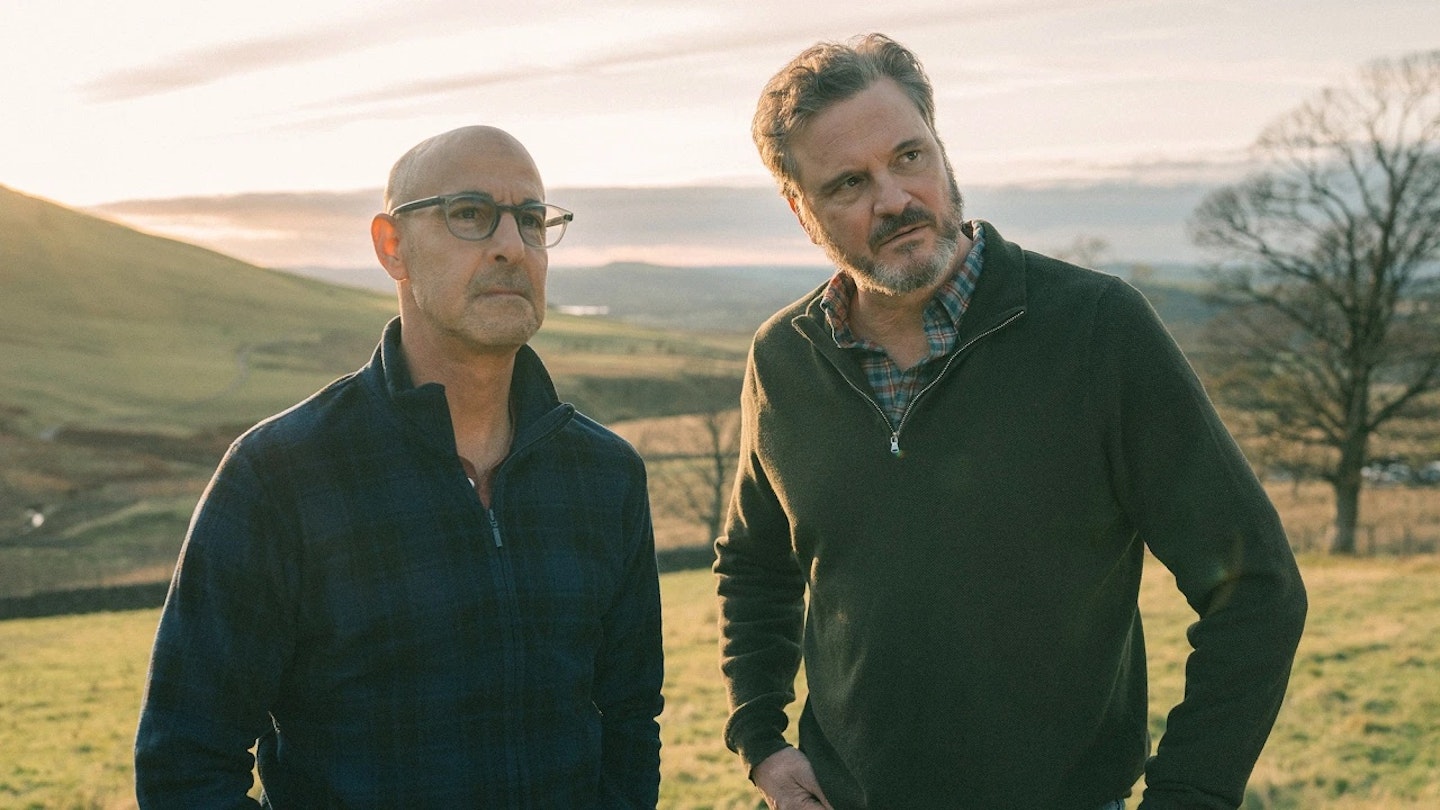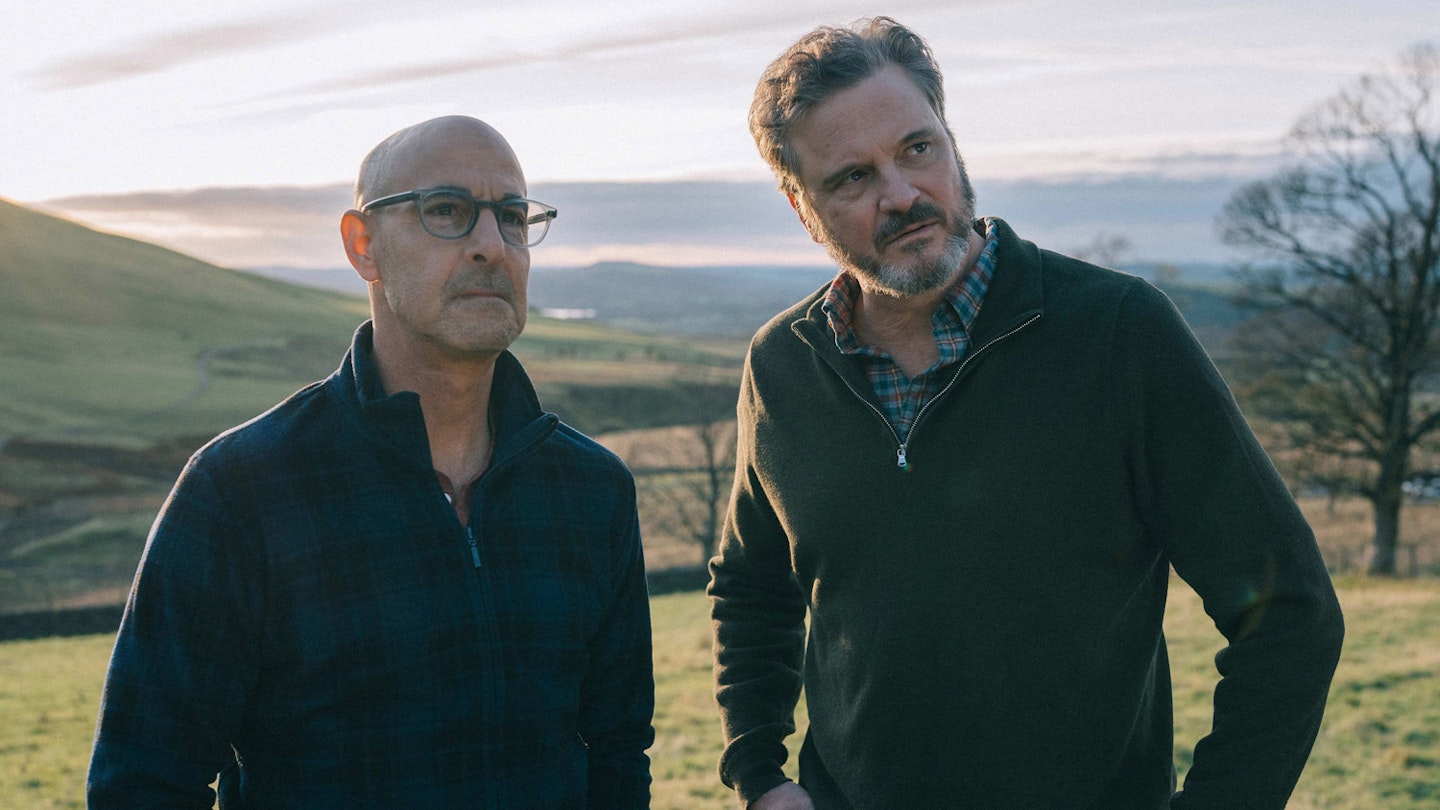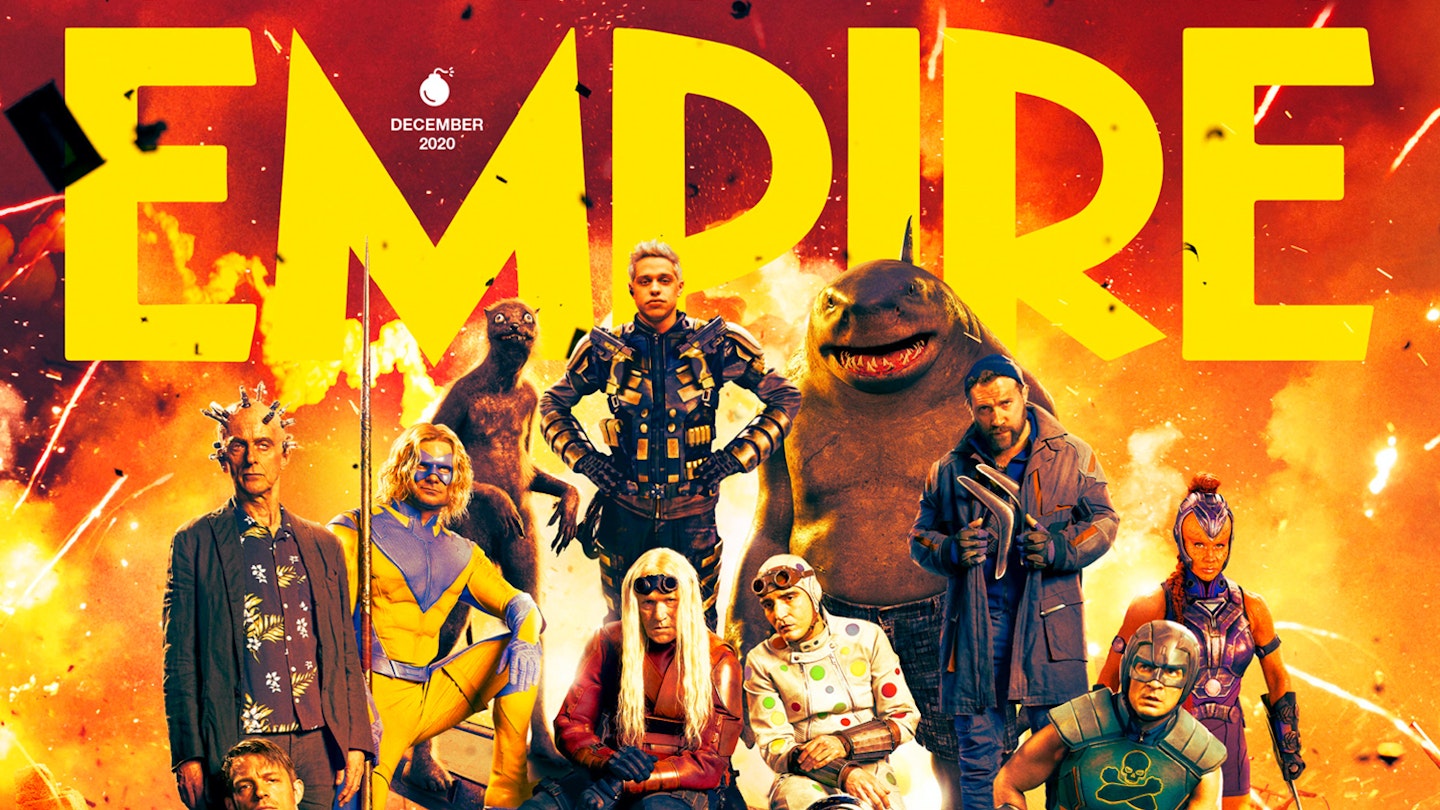For those keeping count, Supernova is the third time Colin Firth and Stanley Tucci have worked together. After 2001’s World War II drama Conspiracy and 2012’s Coen Brothers-scripted caper Gambit, this time the pair have struck gold. An affecting depiction of how a long-term couple negotiate the inexorable effects of dementia, actor-turned-writer-director Harry Macqueen’s second feature (following 2014’s micro-budget Hinterland) relies heavily on the comfortable chemistry between the two actors, long-time friends off-screen, to bring its central relationship to life. The result is talky and could easily be reimagined for the stage, but it is beautifully modulated drama that is unforced and naturalistic, perfectly played by two actors working at the peak of their charm and powers.

At its heart, Supernova is that cinematic rarity, a British road movie. Lapsed concert pianist Sam (Colin Firth) and celebrated American writer Tusker (Stanley Tucci) are travelling through the Lake District in a campervan en route to Sam’s comeback recital. The couple of 20 years listen to Donovan and David Bowie, banter about the impenetrable quality of the Shipping Forecast to an outsider and argue over map-reading versus sat nav (Tusker wants the latter turned off because it sounds like Margaret Thatcher). But soon it becomes clear that something is awry, when Tusker goes missing at a Spar service station, causing Sam to bomb down country lanes looking for him. Tusker has been suffering for two years from early onset dementia, a condition that gets exposed and explored in the (rather writerly) device of recording a regular tape — “Welcome to Dementia Hour On Radio 4” — in which the pair discuss their feelings (“Can you tell that it’s getting worse?” asks Tusker pointedly). Yet the effects of the illness are evident in much smaller, telling ways; Tusker needing help to put on a sweater or unable to conjure up the word “triangle”; Sam quietly composing himself in the confines of a motorhome loo.
With an ease and intimacy, Firth and Tucci create a lived-in relationship, be it in the reminiscence about the first time Tusker said “I love you” (in Tusker’s miniscule car) or the absent-minded scratching of a forearm (“I like it when you do that”). Tucci is in quixotic, intoxicating form — check the awe with which Tusker talks about astronomy — using cheek and wit to hide a reservoir of feelings, a man who desperately wants to be remembered for who he was, rather than what he is about to become.
Neither Tucci and Firth give show-y performative turns; instead they are reserved and refined.
But it’s Firth who provides the real heart of the film. Having already assayed buttoned-up grieving in A Single Man, he delivers top-tier stoic support (Tusker tells him that “you sit there doing nothing, propping up the entire world”), but also perfectly conveys a breaking heart beneath the knitwear. He skilfully captures the strange predicament of loving someone with dementia, that sense of mourning a person while they are still alive. Neither Tucci and Firth give show-y performative turns; instead they are reserved and refined, and Supernova is all the more moving for that.
From the carefully orchestrated spooning in bed (the couple’s sexuality is refreshingly no source of conflict) to the use of Elgar’s sublime ‘Salut D’Amour’ as the unofficial theme (it’s a piece Tusker likes that Sam never plays) to the gorgeous autumnal shots of the Lake District courtesy of Mike Leigh cinematographer Dick Pope, Supernova is aggressively tasteful. Yet it is a film that works by stealth. It starts with an accumulation of intimate, every-day moments that feels like it is going nowhere fast, but gradually without warning you feel deeply involved in these characters’ relationship and predicament. Macqueen’s writing not only textures Sam and Tusker’s relationship with in-jokes and a familiarity that only comes from a shared history, but it also has a quality of being at once emotionally direct without being too on-the-nose: at a family party Tusker is told, despite his illness, “You are still you.” “No, I am not,” he replies, “I just look like him.”
As the road trip progresses, Tusker and Sam have no choice but to deal with the future and Firth, Tucci and McQueen deliver a sensitive, touching depiction of men letting down their defences because there is no other choice — they simply have to. The end of the film is inevitable — a coda slightly overeggs the sentiment — but it remains a hard heart who won’t be undone by Supernova’s small-scale but elegantly wrought tragedy.




